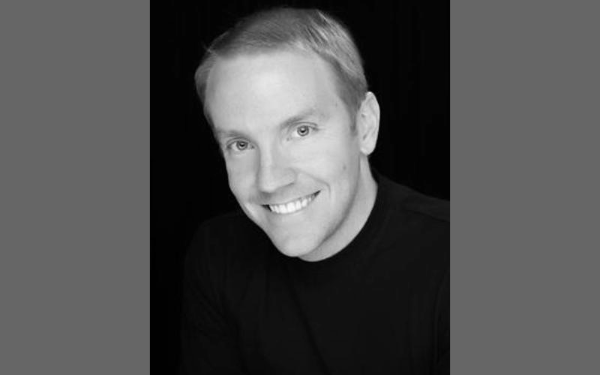Arts and Humanities Inaugural Lectures
Inaugural lectures celebrate Arts and Humanities faculty who have been promoted to the rank of professor. All lectures are held in the Faculty Club Grand Lounge from 4-6 p.m. and are preceded by a reception and followed by Q&A and discussion. All lectures are free and open to the public. We ask that you RSVP at the links below.
The Arts and Humanities Inaugural Lecture Series is sponsored by the College of Arts and Sciences.
Past Lectures
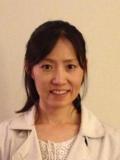
February 12, 2026
Danielle O. Pyun, Department of East Asian Languages and Literatures
More Than Words: Comprehending Idioms and L2 Korean Learning
Idioms are abundant across languages, and their meanings cannot always be derived from their literal definitions. While idioms offer insight into the cultural practices and social values of a speech community, they also present a learning challenge for L2 (second/foreign language) learners. In this presentation, I introduce a set of Korean idioms categorized by their perceived degree of transparency, such as idioms whose literal meanings appear to contribute to their figurative meanings and those whose literal meanings have relatively little connection to their figurative meanings. I then report on which types of idioms American learners of Korean comprehend and retain more effectively.

November 20, 2025
Robert Hughes, Department of English
Steven Joyce, Department of Germanic Languages and Literatures
The Unsettled Self: Art, Love, and Ambient Romance
Professors Robert Hughes and Steven Joyce explore how love and art function as events at the edge of form. Hughes examines how aesthetic experience registers in the body, where the art object’s play with genre provokes affective responses that mirror the subject’s own tensions between identity and instability. Joyce introduces “ambient romance,” a contemporary mode of love shaped by consumer capitalism and cultural drift, as seen in Judith Hermann’s portraits of dislocated millennials. Together, they reflect on how romance and art unsettle the self, revealing the limits of form in shaping emotional life and interpersonal connection.

October 29, 2025
Björn Köhnlein, Department of Linguistics
How timing, melody and prominence interact in sound systems
Timing, melody and prominence not only play important roles in poetry and music, but they also crucially interact in the sound systems of languages. Aside from prototypical tone languages, timing and melody are also important factors contributing to the percept of prominence in languages with word stress. In the study of stress systems (metrical phonology), it is generally assumed that tonal prominence is contrastive only between syllables (as in the intonational difference between the English noun IMpact vs. the verb imPACT). In this talk, I argue that some stress languages have more fine-grained prominence systems where such contrasts can also occur within syllables. I discuss how relevant phenomena can arise over time, how they are integrated into the grammar and the lexicon, and what this means for phonological theory.

September 4, 2024
Karl Whittington, Department of History of Art
Queer Making: Artists and Desire in Medieval Europe
What role does desire play in the making of art objects? Art historians typically answer this question with reference to historical evidence about an artist’s sexual identity, personality, and relationships, or with reference to particular kinds of imagery in works of art. But how do we think about desire in the case of anonymous artists or in works whose subject matter is mainstream? We know little about the lives and personalities of the makers of most works of art in Europe in the Middle Ages, but this should not hold us back from thinking about their embodied experience. In this talk, drawn from an almost-completed book of the same title, I argue that we can “queer” the works of anonymous historical makers by thinking not about their identities or about the subject matter of their artworks but rather about their embodied experiences working with materials. Through considering issues of touch, pressure and gesture across materials such as wood, stone, ivory, wax, cloth, and metal, I argue for an erotics of artisanal labor, in which the actions of hand, body, and breath interact in intimate ways with materials. Combining historical evidence with more speculative description, I aim to broaden our understanding of the motivations and experiences of premodern artists.
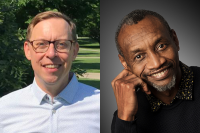
September 24, 2024
Ryan Skinner, School of Music
Dani Kouyaté, filmmaker
Dialogue as Humanistic Inquiry: A Conversation with Ryan Skinner and Dani Kouyaté
This lecture will introduce the collaborative writing project, Openings: The Life, Work, and Worldview of a Cinematic Griot, co-conceived and composed by musical anthropologist Ryan Skinner and filmmaker Dani Kouyaté. A leading figure in contemporary African cinema, with nine feature films and documentaries to his name, Kouyaté is also a griot — a Mande (West African) oral historian and verbal artist. Skinner is the author of two books on Africa and its diaspora: Bamako Sounds: The Afropolitan Ethics of Malian Music (2015) and Afro-Sweden: Becoming Black in a Colorblind Country (2022), both published by the University of Minnesota Press. Based on eight years of conversation and intellectual exchange, the book is a curated collection of dialogues between Skinner and Kouyaté that center the latter’s cultural heritage, creative practice, transnational lifeway, and humanistic philosophy. Skinner will begin by presenting the project, its methods, and a survey of its content. Then, following the dialogic structure of the project, Skinner and Kouyaté will discuss their joint work and Kouyaté’s latest feature film, Katanga: The dance of the scorpions, a West African adaptation of Macbeth. For those interested and available, Katanga will be premiered at the Wexner Center for the Arts at 4 p.m. on Monday, September 23.

October 8, 2024
Alexander Burry, Department of Slavic and East European Languages and Cultures
Alternative Secularism: Mikhail Bulgakov’s The Master and Margarita as Critique of Official Religious Policy
How can an anti-Soviet novel resonate in today’s world, given the virtual obsolescence of the political system satirized in The Master and Margarita? I would argue that Bulgakov’s most lasting contribution in this novel may be his idiosyncratic presentation of religious figures, texts, and ideas. Scholars following this approach tend to privilege one particular religion, whether it be Judaism, Orthodox or heretical Christianity, or Gnosticism, as the key to understanding the author’s eclectic portraits of the Devil and other supernatural characters. But given the opening chapter’s critique of Soviet “Official Atheism,” the wide range of religious viewpoints also undermines the idea of coercive secularism. I position Bulgakov’s diverse, coexisting series of religious approaches in The Master and Margarita within the discourse of secularism (which had reached Russia later than Western Europe) as an alternative to the Soviet approach, and one that may have some relevance for contemporary society as well.

October 16, 2024
George Rush, Department of Art
Recent Projects
This artist talk will share work from four recent solo exhibitions: Assisted Living, 2022, Dayton Contemporary, Dayton OH; Double Bind, 2023, Belle-Isle Viewing Room, Detroit MI; Night Watch, 2024 Gallery goldene Pforte, Dresden, Germany; and Make-believe Love, 2024, ESCOLAR, Santa Rosa CA. Through painting, drawing, installation, and bookmaking, all four of these projects explore issues of place, time, class, observation, and subjectivity. I will speak to the specific motivations and process of making these projects while sharing images of exhibitions, individual works, and a recent artist book.

November 12, 2024
Stephen Gavazzi, CHRR
John Low, Newark Earthworks Center
Land-Grant Universities, Native Nations, and Tribal Territories: When Will Ohio State Adopt an Official Land Acknowledgement?
Researchers and journalists have documented the massive transfer of wealth from Native Nations that underwrote the founding of land-grant universities (LGUs), forcing these institutions to contend with hard questions about their relationship to Indigenous communities. Growing numbers of LGUs have created Land Acknowledgment (LA) statements, the best of which serve as a call to action: “We are the on the lands of Indigenous peoples, and our institutions have benefited from the sale of Tribal Territories. What commitments and obligations flow from the acknowledgment of those facts?” Regrettably, to date The Ohio State University has failed to adopt an official LA statement. The presenters will outline a set of best practices that can help guide and direct our university toward a comprehensive and just acknowledgement of this historical context and its reverberating impact on the lives of contemporary Native Americans.

November 20, 2024
Andrea Sims, Department of Linguistics
Modeling trees, theorizing forests: From local to system-level linguistic organization
Linguistic typologists theorize about the nature of language by comparing properties of languages and building explanatory models of identified patterns. Broadly speaking, explanation comes from the interaction of two types of factors: the cognitive principles that determine how speakers make generalizations about their language, and the linguistic data over which they make those generalizations. While the field has focused primarily on the first of these, in this talk I argue for more attention to the latter. The generalizations speakers make about morphology are local in scale, reflecting the influence of similar words (‘neighbors’). I show that the relationship between this local organization and system-level properties of the sort that interest typologists is not straightforward but can be quantitatively modeled using tools from network science. I consider how this approach can aid in theorizing about system-level morphological organization in the world’s languages.

January 29, 2025
Leslie Lockett, Department of English
Writing the History of Cheese in Medieval Europe
How were cheesemaking, cheese consumption, and the cultural significance of cheese different in medieval Europe (ca. 500-1500 CE) than they are for us? In this lecture I address this question from three angles, by discussing cheese itself, cheese as a symbol or concept, and replicative experiments in cheesemaking. In the first part of the talk, I analyze written historical evidence concerning how cheeses were produced, eaten, and enjoyed in the era before artificial refrigeration and microscopes existed, and I show that the cultural significance of cheese varied sharply among regions within medieval Europe. Next, I examine instances in which cheese serves as a potent symbol or explanatory concept: for example, the remarkable analogy that likens the development of the human fetus in the womb to the coagulation of milk into cheese curds. To conclude, I share plans for the next phase of my research, in which the principles of experimental archaeology will inform the project of replicating medieval cheesemaking methods and materials as thoroughly as possible, potentially granting us a deeper understanding of medieval cheeses than written evidence alone will permit.
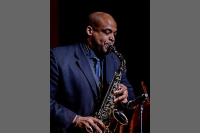
February 4, 2025
Shawn Wallace, School of Music
Authentic Representation and Systemic Exclusion in Black American Music
This lecture examines the historical and contemporary systemic exclusions impacting the authentic representation of Black American Music (BAM). Focusing on the perspectives of Nicholas Payton, a renowned musician and critic, we explore the problematic connotations of the term "jazz" and Payton's advocacy for "Black American Music" as a more accurate label. Through this lens, we investigate the cultural erasure and appropriation tied to BAM and its implications for representation in academic and social contexts.
We begin by contextualizing the historical evolution of the term "jazz," highlighting its racialized origins and societal perceptions as morally questionable. These associations have contributed to the marginalization and trivialization of Black contributions, obscuring the genre's intellectual and cultural depth. The lecture highlights key figures, including Louis Armstrong, Duke Ellington, Charlie Parker, and John Coltrane, whose innovations shaped the genre yet whose legacies are often diluted in academic narratives.
The discussion then addresses the underrepresentation of Black musicians and educators in academia, emphasizing how curricula often promote a sanitized, Eurocentric version of jazz, termed "academic jazz." This version strips the genre of its improvisational and cultural roots, replacing them with classical frameworks. Such practices perpetuate systemic exclusion and undermine the authenticity of BAM, necessitating efforts to reclaim its cultural and intellectual significance.
The economic role of BAM is also examined, tracing its evolution from jazz to contemporary genres like hip-hop and R&B. These innovations highlight the resilience and adaptability of Black musicians in overcoming socio-economic barriers. Despite this cultural and economic influence, systemic disparities rooted in slavery, segregation, and redlining continue to undermine educational and economic prospects for Black communities, limiting their representation in higher education.
Cancel culture's influence on academic discourse is analyzed, revealing how ideological conformity can hinder open discussions on race, history, and reparations. The lecture advocates for balanced, constructive engagement that fosters critical inquiry while addressing systemic inequities. We propose strategies to integrate BAM authentically into academia, including curriculum reform, hiring diverse faculty, adopting inclusive pedagogies, and building community partnerships.
Ultimately, this lecture argues for a reimagined academic framework that acknowledges and preserves BAM's rich cultural heritage. It calls for addressing systemic exclusions, promoting genuine multiculturalism, and supporting reparations to rectify historical injustices. Through these measures, we can honor the legacy of Black musicians and ensure BAM's rightful place in cultural and academic narratives.
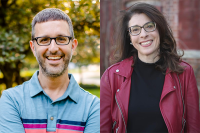
February 12, 2025
Isaac Weiner, Department of Comparative Studies
Robin Judd, Department of History
Constructing Norms, Contesting Boundaries: A Conversation about Community and Scholarship
In this joint inaugural lecture, Professors Judd and Weiner will engage each other in conversation about common themes and questions that animate their respective research. Judd, a historian of modern Jewish life, and Weiner, a scholar of American religious studies, are both interested in how communities, whether imagined in religious, racial, or national terms, construct and contest norms of practice and identity. In different ways, their research centers particular cases and controversies through which communities have negotiated terms of membership, and each considers how different forms of regulatory and disciplinary power have shaped these exchanges. By offering examples from their research, service, and teaching, their joint presentation will also attend to their shared theoretical and methodological influences, not the least of which is a commitment to scholarly collaboration and conversation.
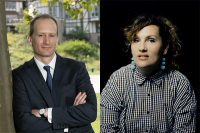
February 26, 2025
Benjamin Hoffmann, Department of French and Italian
Lucille Toth, Department of French and Italian
Improvisation, Structure, and the Literary Text
A novelist and scholar of eighteenth-century French literature, Benjamin Hoffmann is the author of a diverse body of work published in French and English, including novels, monographs, critical editions, edited volumes, as well as numerous articles and short stories. In this conversation with Associate Professor Lucille Toth, Hoffmann will discuss his three most recent works (L’île de la Sentinelle, Gallimard, 2022; Les Minuscules, Gallimard, 2024; and Je suis Murakami, Zone Critique, 2025), while examining the interplay between literary criticism and creative writing.
What does it mean to navigate the liminal space where fiction converges with scholarship? How does one articulate a vision at the intersection of disciplines such as literary studies and anthropology? Can a unifying thread be discerned across works that span a variety of genres and forms such as dystopia, magical realism, autobiography, campus novel, travel writing, and historical fiction? Finally, how does the process of writing fiction differ from that of crafting scholarly discourse?

April 8, 2025
Carmen Winant, Department of Art
Nicholas Breyfogle, Department of History
Working with and in Public: A Conversation about History, Photographs, and the Physical Archive
This joint inaugural lecture brings together Carmen Winant and Nicholas Breyfogle, from the Art and History Departments respectively, to engage each other in conversation about the themes, questions, and approaches that animate their respective research and creative process. Winant and Breyfogle will share their experiences working within non-traditional archives, contending with photography as both a haptic material and a vital means of storytelling, and making work for the public as a dedicated practice.
Through photography, installations, and artist's books, Winant's work utilizes archival and authored photographs to examine feminist care networks, with particular emphasis on intergenerational, multiracial, and sometimes transnational coalition building. Breyfogle specializes in the history of Russia/Soviet Union, global environmental and especially water history, and public history, bringing historical knowledge and analysis to the general public through multiple media.
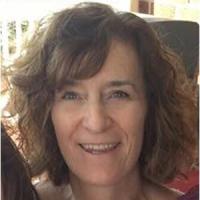
Tuesday, October 3
Heather Tanner, Department of History
More powerful than you know – Noblewomen’s lordship and governance in high medieval France
If you go by Lena Dunham’s Birdy and Matt Damon and Ben Affleck’s The Last Duel, most folks view the medieval woman as a poster child of oppression– forced to marry at a very young age, never allowed a voice or self-determination, and certainly forbidden to govern. Scholars of medieval history agree that misogyny and patriarchy circumscribed women’s lives. Despite this, there’s a strong consensus that elite women, noble and royal, did wield power in the early medieval period (c. 500 – c. 1000), but that their high medieval (c. 1000-c. 1300) counterparts were effectively silenced and effaced from governance by institutional and legal changes by the thirteenth century. But were they?
Wednesday, October 18
James Fredal, Department of English
Another Bullshit Talk
The academic pursuit of bullshit didn't begin in 1986. Perry's work on examsmanship in 1963, Postman's comments on crap-detection in 1969, and Mukerji's sociological work on hitchhikers in 1978 all predate the rise of bullshit studies, to say nothing of the field's pre- 20th C. foundations. But 1986, the date of Frankfurt's On Bullshit is where tauruscatics got a real kick in the pants. In this talk, I offer a brief primer on post-Frankfurt b.s. studies, a tidy precis of some of the issues that define the field, and a tentative contribution to ongoing bullshit study.

Wednesday, November 8
John Thrasher, Department of Art
Technical and Conceptual Approaches in Solo Practice and Collaboration in the Visual and Performing Arts at The Ohio State University’s regional campus in Mansfield
Artists who educate must continually adapt to changing methods and patterns of communication that influence human perception and sensitivity. In addition to maintaining teaching and administrative responsibilities, artist teachers are compelled to respond to continually changing “visionscapes” through their practices and convey their own reverie to the public, and especially to students they are privileged to instruct. This benchmark of university scholarship demands that we draw on our experience and personal exploration of art to convey the esoteric nature of its role in our lives and work as a language.
I introduce this lecture by presenting artworks from my exhibition and publication portfolios and conclude with examples of collaborative projects with which I have been involved through The Pearl Conard Gallery and the Theater program at The Ohio State University Mansfield.

Tuesday, January 16, 2024
Anna Babel, Department of Spanish and Portuguese
Not-very-TikTok-Famous: Undoing academic hierarchies and making our work accessible, relevant, and entertaining
How we talk to people matters. In our profession, we often shroud our work in academic jargon, publish in expensive journals that are typically available only through university libraries, and teach at institutions where tuition and fees are the first and firmest prerequisites to our classes. In my discipline, we teach that all varieties of language are equally logical, expressive, and appropriate at the same time that we “correct” students’ grammar and socialize them into the structures of academic writing.
This is a story about unlearning academic registers of speaking, disrupting my teaching methods, and challenging the received wisdom of what counts as academic writing. I’ll talk about why and how I went about acquiring skills to communicate with students and with the general public in ways that engage and affirm the principles that we preach but sometimes fail to practice.
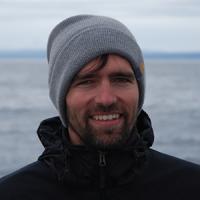
Wednesday, February 21, 2024
Bart Elmore, Department of History
Monsanto’s Past and Our Food Future
Years ago, a St Louis chemical firm turned seed giant said it had the answer to feeding a hungry world in the era of climate change. In 1996, that company introduced the first genetically engineered commodity crops, changing the face of global agriculture forever. Now, more than twenty-five years later, we’ll discuss what history can teach us about the promises Monsanto made and the future of food.
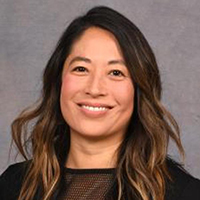
Tuesday, March 5, 2024
Joyce Chen, Department of Women's, Gender and Sexuality Studies
Confessions of a Recovering Economist
In moving from the Department of Agricultural, Environmental, and Development Economics to Women’s, Gender and Sexuality Studies, I am looking to re-invent my research, teaching, and engagement. I will discuss my prior work as an economist and reflect on how it could and should have been informed by theories of feminist, racial, and social justice. I explore new ways in which economic theory can be deconstructed and decolonialized to become both more inclusive and more relevant.
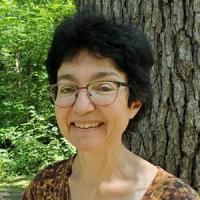
Wednesday, April 3, 2024
Pat Sieber, Department of East Asian Languages and Literatures
The Difference Pronouns Can Make: Performance Aesthetics and China’s First Female Star Theater, 1260-1400
It is well-known that China’s theatrical culture matured during the Mongol Yuan dynasty, featuring, among other innovations, a substantial number of female stars known for their ability to successfully perform an array of both male and female roles. In this talk, we will explore how the new mixed-register written language characteristic of playtexts and songs in Mongol China contributed to a leveling of social hierarchies through the fungibility of pronouns. In so doing, such texts and their innovative rhetoric functioned both as a symptom and as a catalyst of an expanded urban ecology of play.

Tuesday, October 4
Joint lecture with Treva Lindsey, Department of Women’s, Gender and Sexuality Studies and Joni Boyd Acuff, Department of Arts Administration, Education and Policy
“We Are the Ones We’ve Been Waiting For: The Futures of Black Feminist Art and Activism”
In this non-traditional lecture, Professors Acuff and Lindsey will engage in an expansive and dynamic conversation about the genealogies, legacies, and futures of Black feminist art and activism. Using their respective journeys within the Black feminist tradition, they will explore the multitudes of world-making practices made possible by Black feminist studies as well as the challenges- present and future- those committed to addressing social disparities, inequities, and injustices must confront. Through their bodies of work and the multigenerational bodies of knowledge upon which Black feminist inquiry, imagination, and art-making continue to thrive, they posit that Black feminisms remain integral to contemporary struggles for justice.
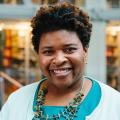
Wednesday, November 2
Wendy Smooth, Professor in the Department of Women’s, Gender and Sexuality Studies and Senior Vice Provost for Inclusive Excellence

Thursday, January 26, 2023
Christopher McKnight Nichols, Professor in the Department of History
Installation as Wayne Woodrow Hayes Chair in National Security Studies, The Mershon Center for International Security Studies

Wednesday, February 8, 2023
Paloma Martinez-Cruz, Professor in the Department of Spanish and Portuguese and Department of English
Whose Magic Mushroom? Writing Mazatec Culture out of Mushroom Medicine
From the stresses of parenthood to the relief of symptoms related to treatment-resistant depression, obsessive compulsive disorder and other mental health disorders, uses for “magic mushrooms” are on the rise around the globe. But psilocybin, the naturally occurring psychedelic compound produced by hundreds of species of fungi, arrives to big pharma only because a U.S. researcher tricked a Mazatec Mexican shaman into offering him her culture’s sacred medicine. What is to be made of this explosion of Indigenous Mexican medicine? How does the violation of Indigenous rights figure into our understanding of its circulation and consumption? Informed by decolonial, feminist Latinx research, Martinez-Cruz interrogates the mushroom marketplace that has long ignored ethical questions around sacred Indigenous property.

Wednesday, February 22, 2023
Mytheli Sreenivas, Professor in the Department of History and Department of Women’s, Gender and Sexuality Studies
Making Sense of Tangled Pasts: Reproductive Politics, Feminisms, and History
In November 1952, the International Planned Parenthood Federation was created in Bombay, India, at an international conference of birth control activists, scientists, and policymakers. The centrality of India to an aspiring global network was no accident. For many of those gathered in Bombay, India would prove to be a test case through which a planetary drive to regulate fertility, promote postcolonial development, and control population would either succeed or fail. Sreenivas examines this moment, and the longer histories in which it was embedded, to investigate the politics of reproduction, both in India and globally, across the twentieth century. How might we trace the intersecting histories of empire, eugenics, race, and global inequality as they shaped whose reproduction was valued, and why? How did feminists, despite claims to liberate and empower women, also support policies that violated the reproductive autonomy of the most marginalized populations? And finally, what are the stakes in writing these difficult histories now, when reproductive rights are under attack?

Thursday, March 9, 2023
Joint lecture with Ben McCorkle, Professor in the Department of English, and Scott DeWitt, Professor in the Department of English
Hidden, Invisible, and Forgotten: The Histories of Technology in English at The Ohio State University
In 1989, the Ohio State Department of English, funded by a grant from Apple Computers, established Computers in Composition and Literature, a combination of computer classrooms and administrative infrastructure designed to cultivate a local culture of computer-supported teaching. Since then, support for research and instructional technology has remained a constant feature of the department, but the form of that support has changed over time to reflect broader changes in the spheres of technology and higher education. In this talk, we recount this local history, sharing artifacts from this hidden past and reflecting on the implications of impending shifts in the technological and educational landscapes.
Thursday, March 23, 2023
Joint lecture with Ana Elena Puga, Professor in Department of Theatre, Film, and Media Arts and Department of Spanish and Portuguese, and Katherine Borland, Professor in the Department of Comparative Studies.
Migrations, Protests and Pilgrimage from the lens of Folklore and Performance Studies
Ana Puga and Katherine Borland have been engaged in intersecting scholarly endeavors since their undergraduate days in Chicago. In this joint inaugural lecture, they will explore each other’s work on performance, migration, pilgrimage and solidarity activism across the borders of the Western Hemisphere.
Tuesday, Oct. 26 (Joint Lecture)

Elizabeth Hewitt, English
"Managing Time in a Plurality of Worlds"
In the summer of 1787, a group of white men crafted a document designed to manage the sprawling size of a new nation and to establish a framework to provide for its perpetuity. This took time: twelve months from the beginning of the convention to ratification. And in the 233 years since, it has been amended and reinterpreted repeatedly. Yet it is enshrined as timeless. Why? To pursue this question, I turn to early US literary history and to a body of work that speculates on alternative Americas: poems and fictions that portray the nation in a distant future, or that discover other and better lands, or that turn to the past to reimagine alternative futures.
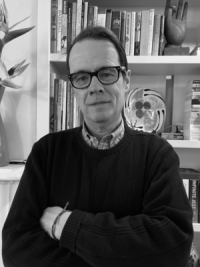
Greg Anderson, History
"Life in a Pluriverse of Many Different Worlds"
The “one world” metaphysical foundations of our global capitalist order are now being vigorously challenged by a diverse range of constituencies, including Indigenous communities, ecological activists, and an ever-growing cross-disciplinary alliance of academics. Together these various critics encourage us to take seriously the idea that humans have always lived in a pluriverse of many different worlds, not in a universe of just one. For some years now, my own work has been exploring the far-reaching implications of this radical idea. In essence, it tries to show how the practice of a novel “pluriversal history” can support ongoing efforts to critique the “one world” world of capitalist modernity and enact more humane, more ecologically responsible alternatives.
Thursday, Nov. 18

Susan Lang, English
"Aviate, Navigate, Communicate: The Essential Interdisciplinarity of Research in Writing Studies"
How does the crisis management mantra, “Aviate, Navigate, Communicate,” intersect with and in some ways exemplify the interdisciplinary nature of Writing Studies? As it turns out, perhaps in more ways than one would think. In addressing this question, I’ll first draw on past and current collaborations that demonstrate the need for writing studies researchers to cross traditional disciplinary boundaries. Next, I’ll identify critical gaps our knowledge of writing and writing instruction that must be addressed as both the nature of writing and larger post-secondary institution curricular structures change. Finally, I’ll outline a program of research that can address some of these gaps, from identifying how writing is evolving in STEM disciplines to examining the role of AI in writing and writing instruction, and that emphasizes the essential interdisciplinarity of writing studies at the end of the first quarter of the 21st century.
Thursday, Dec. 2 (Joint Lecture)

Kay Halasek, English
"Metaphors We Teach By: Reflections on Pedagogy in the Age of Big Data"
Our teaching is defined and therefore framed (Lakoff) by the metaphors we embrace. And any metaphor, by nature, both amplifies and reduces, elevating some of the qualities shared between vehicle and tenor while diminishing others. I begin my remarks by surveying and complicating the cardinal metaphors that have informed the teaching of writing since the 1960s. I then turn to my current thinking by proposing and exploring the implications of the “nudge”—that gentle prod, touch, or push that directs others’ attention toward something (and away from something else) and choice architecture (Thaler and Sunstein). Turning, as well, to prospect theory (Kahneman and Tversky), and fast and slow thinking (Kahneman), I both problematize and identify how we may resituate our collective conversations—and actions as teachers—in interest of sustaining, restoring, and revitalizing pedagogies.

Scott Jones, Music
"Trading Efficiency for Outcomes: Large Ensemble Music Making without a Conductor"
Rehearsal efficiency is essential for the professional orchestra. The few rehearsals that occur prior to performance are designed to maximize productivity (and thereby minimize expense). A key facet of this model is entrusting the responsibility for virtually all artistic and creative decisions to a single individual – the conductor. Empowered with a fully formed vision of the repertoire, a conductor can lead rehearsals effectively within exceptionally strict time constraints.
It is common for music ensembles in higher education - particularly the most skilled - to emulate attributes of a professional ensemble, including the prioritization of rehearsal efficiency. This “self-imposed” prioritizing, however, necessitates a “de-prioritizing” of other dimensions of the curricular experience. What curricular outcomes emerge for university musicians when efficiency is less of a priority in ensemble rehearsal? Further, how is the student experience changed by awarding decision-making responsibility to the musicians as a collective whole?
Inspired by the Orpheus Chamber Orchestra (NY), I share the application of their “conductorless” model to university large ensemble rehearsal and performance. Implications for the future of ensemble music making in higher education, research potential, and application of this approach to endeavors outside of the arts and will also be explored.
Wednesday, Feb. 23 (Joint Lecture) – Postponed Until Fall
Sara Crosby (English) and Sam White (History)
Wednesday, March 23 (Joint Lecture)

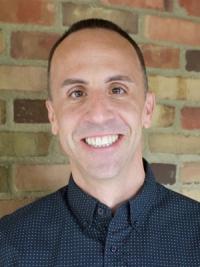
Ryan Friedman, English
Dana Renga, French and Italian
"A Conversation around Process, Methodology, and What Lies Ahead"
This conversation traces the origins of Ryan and Dana’s new book projects, beginning with a discussion around their “promotion books” which both came out in 2019 (The Movies as a World Force: American Silent Cinema and the Utopian Imagination/Friedman and Sympathetic Perpetrators on Italian Television: Gomorrah and Beyond/Renga), and continuing with a dialogue around their trajectories as researchers working in film and media studies, focusing on how their methodologies have developed over time. In that they find themselves at similar stages in their new books they will also discuss the process of conceptualizing a new project after promotion, having first published shorter pieces on the same topic. Ryan’s new book project is a study of African American specialty numbers in 1940s Hollywood musicals and race movies, while Dana’s new book #CastingStardom in Contemporary Italian Television is a large scale study of casting practices in contemporary, popular Italian television that has found significant audiences outside of Italy.
Tuesday, April 5
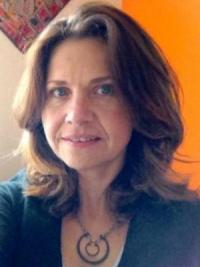
Carmen Taleghani-Nikazm, Germanic Languages and Literatures
"Grammar at work: The interplay between language and social interaction"
Traditionally, grammar has been viewed as a cognitive system of rules governing the morphosyntax of a given language. In my talk, I discuss a different view of grammar, one informed by research in conversation analysis and interactional linguistics. In these fields, grammar is viewed as an organized system that is dynamic, context-dependent and emergent in the moment-by-moment unfolding of social interaction. Focusing on practices which speakers use to get others to do things (e.g., requesting, prompting, etc.), I demonstrate how grammar is shaped by interaction. I do this by examining the interplay between linguistic structure (e.g., an imperative versus a declarative), prosodic features (e.g., stress, pitch) and embodied resources (e.g., gaze, body posture, gesture), as well as their relative and temporal position within conversation. In the second part of my talk, I discuss the implications of the findings of this line of research for second language studies, in particular, for analyzing learners’ language use in interaction and for language teacher training.
Wednesday, Nov. 20
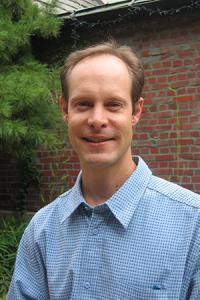
Michael White, Computational Linguistics
"Does Neural NLG Need Linguistics?"
Over the past few years, a deep learning wave has swept over the computational linguistics community, displacing methods that made explicit use of linguistic knowledge and representations. In the subfield of natural language generation (NLG) in particular, neural methods arrived with much fanfare and quickly became the dominant method employed in recent shared task challenges. While neural methods promise robust and flexible models that are easy to train across languages, recent studies have revealed their inability to produce satisfactory output for longer or more complex texts, as well as how the black-box nature of these models makes them difficult to control, in contrast to traditional NLG architectures. In this talk, I will review recent work by my group and others that makes use explicit, linguistically-motived intermediate representations in neural NLG in order to improve coherence and cohesion, and speculate on ways in which computational cognitive models of production and comprehension might find their way into neural NLG going forward.
Wednesday, Jan. 8
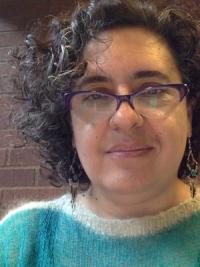
Guisela Latorre, Women’s, Gender and Sexuality Studies
"Museos a Cielo Abierto: The Spatial Politics of Chilean Street Art"
The return to democracy in Chile in the late 1980s allowed for the emergence of a radical street art movement there. The rise of museos a cielo abierto, or “open sky museums,” is an important component of that movement. These street art museums function as symbolic and physical reclamations of urban spaces commonly controlled by the state and the corporate sector. Latorre will argue that these museos a cielo abierto offer innovative models for activist art action that effectively democratize city streets.
Wednesday, Jan. 22

Ulises Juan Zevallos-Aguilar, Spanish and Portuguese
"Cultural Agency in the Amazon. Indigenous Amazonian Painting on Extractivism"
Together with many Indigenous peoples from Latin American, indigenous artists have used different media such as literature, film, mural and performance to denounce and resist environmental extractivism since the 80s. They saw their people lose ancestral lands and suffer from pollution. They denounced the privatization of their territories, which their governments sold or gave in concession to mining and agrobusiness corporations without consulting them. In this presentation, Zevallos-Aguilar will explore the paintings of Brus Rubio Churay, a Murui-Bora painter, who depicts the effects of a new wave of extractivism of oil and lumber in the Amazon. However, instead of taking a frontal opposition against it, he essays a more complex interpretation and tries to change the idea that the value of the Amazon isn’t only related to natural resources. On the contrary, its value is rooted in bio and cultural diversity.
Wednesday, Feb. 26
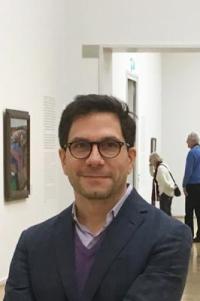
Christian Kleinbub, History of Art
"Conversations around Italian Renaissance Art"
Conversation was both a social fact and a cultural paradigm in early modern Italy. Not only do we know about numerous conversations from historical texts, but many others were enhanced, invented and recorded by the most prominent authors of the period, including the likes of Leon Battista Alberti, Leonardo Bruni and Baldassare Castiglione. Taking its cue from studies in early modern culture and literature, this talk considers how conversation, the actual activity and the cultural ideal, informed the visual arts. I ask to what extent talking about paintings — not to mention figures shown talking in paintings (e.g. sacra conversazione) — mattered to artists and their audiences in the period.
Wednesday, March 18

Carmen Taleghani-Nikazm, Germanic Languages and Literatures
"Grammar at work: The interplay between language and social interaction"
Traditionally, grammar has been viewed as a cognitive system of rules governing the morphosyntax of a given language. In my talk, I discuss a different view of grammar, one informed by research in Conversation Analysis and Interactional Linguistics. In these fields, grammar is viewed as an organized system that is dynamic, context-dependent and emergent in the moment-by-moment unfolding of social interaction. Focusing on practices that speakers use to get others to do things (such as requesting, prompting, etc.), I demonstrate how grammar is shaped by interaction. I do this by examining the interplay between linguistic structure (an imperative versus a declarative), prosodic features (stress, pitch) and embodied resources (gaze, body posture, gesture), as well as their relative and temporal position within conversation. In the second part of my talk, I discuss the implications of the findings of this line of research for second language studies, in particular, for analyzing learners’ language use in interaction and for language teacher training.
Wednesday, April 8

Greg Anderson, History
"Pluriversal History: New Horizons of Analysis and Critique"
Growing numbers of indigenous peoples, social activists and academics are now vigorously challenging the “one-world” metaphysical foundations of our modern capitalist order, variously pressing the case that life can and should be experienced in a “pluriverse” of many different worlds, not just in a universe of one. My talk considers the possibility of a “pluriversal history,” a bold new paradigm of historical practice that would be closely aligned with this larger cause. Using classical Athens (ca. 480-320 BC) as a case study, the talk will show first how this new paradigm can help historians to produce more ethical, more historically meaningful histories, encouraging them to analyze each non-modern way of life on its own ontological terms, in its own more or less distinct world of experience. It then suggests that these new histories could in turn provide a kind of historical charter for the larger pluriversalist cause, thereby supporting ongoing efforts to critique the “one-world” world of capitalist modernity and build more humane, more sustainable alternatives.
Friday, April 24

Declan Smithies, Philosophy
"The Problem of Morally Repugnant Beliefs"
This lecture explores a theoretical problem in moral epistemology. Can we be justified in holding false beliefs about moral principles? Epistemological orthodoxy says we can have justified false beliefs about any topic, including principles of morality. But is it really tolerable to suppose that we can ever be justified in holding morally repugnant beliefs, such as the belief that it's permissible to harm people just because they are members of certain demographic groups? Smithies will argue on principled grounds that the answer is no and will explore the consequences of this conclusion for theories in moral epistemology.
Friday, Oct. 26
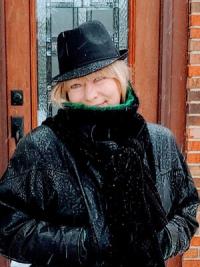
Ludmila Isurin, Slavic and Eastern European Languages and Cultures
"Down Memory Lane: An Interdisciplinary Perspective on Memory Studies"
In this talk, I will focus on three areas of memory studies, such as loss of memory for the first language, autobiographical memory, and collective memory; and I will take the retrospective and the introspective look at my contribution to these fields. I will discuss the joys and perils of being an interdisciplinary scholar and provide my take on the past, present, and future of memory studies to which I have been contributing for almost two decades. From the discussion of methodological issues faced by research on memory in all three fields, to the problem of finding an outlet for publication of interdisciplinary research on memory, this talk will be a travel down memory lane as well as my take on the future of memory research.
Wednesday, Dec. 12

John Grinstead, Spanish and Portuguese, Linguistics
"Interface Delay"
Patterns of child language development suggest that anaphora is challenging for children; more so for children diagnosed with specific language impairment (SLI). Anaphora suffers a prolonged developmental trajectory in nominal syntax with the delay of adult-like use of definite noun phrases of all types. In the verbal domain, temporal anaphora is similarly delayed. Because of the many roles played in syntax by tense, we find a set of cascading effects across language. In children diagnosed with the genetically-rooted, heritable language disorder known as specific language impairment, we find this pattern of delayed development of anaphora repeated, but prolonged and more severe. Tense marking in particular can be used as a clinical marker of SLI, across a range of languages, including Spanish. In the domain of meaning, we find a different pattern of emergence, perhaps more related to the language-internal integration of semantics/pragmatics with other sub-domains of language, including the sound system. There is a notable effect of the development of non-linguistic, domain-general cognitive abilities, including inhibition, on children’s interpretations of an array of quantifier types. Elucidating the interactions among cognitive domains in language is at the center of the projects in our lab.
Wednesday, Feb. 27

Stephanie Smith, History
"The Revolutionary Politics of Art in Postrevolutionary Mexico"
During the 1920s, 1930s, and 1940s, Mexico City acted as a nexus of radical artists and intellectuals — from Mexico and abroad — who met, organized, and created their works in this lively city. My talk analyzes the complex interactions of these folks from different parts of the world and the ways they shaped Mexico’s postrevolutionary cultural and political environments. In addition to Mexico’s leading artists, including Diego Rivera, Frida Kahlo, and David Alfaro Siqueiros, this presentation will consider the photographer Tina Modotti (from Italy); the founder of the journal Mexican Folkways, Frances (Paca) Toor (from the U.S.); the printmaker Pablo O’Higgins (from the U.S.); the controversial arrival of Leon Trotsky (from the Soviet Union); and others.
Wednesday, March 20

Fernando Unzueta, Spanish and Portuguese
"Newspapers and Literature in 19th-Century Latin America"
Newspapers were central to the development and institutionalization of literature in Latin America’s 19th-Century. They provided the main outlet for the publication of narrative fiction and discussions about literature. I will explore this process in the Bolivian case, suggest that literary texts were read differently in the pages of newspapers, and that this interconnectedness contributed to their role forging a national imaginary.
Wednesday, April 10
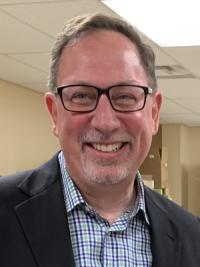
Scott Levi, History (Rescheduled)
"The Khanate of Khoqand, 1709–1876: A Journey into Central Asian History"
This talk will introduce key themes from my recent book on the Khanate of Khoqand, a surprisingly dynamic state that emerged over the course of the eighteenth century in eastern Uzbekistan’s Ferghana Valley. The talk will address the ways that political, economic, technological and environmental developments influenced life in early modern Central Asia and contributed to the rise, and fall, of Khoqand. It will also identify a number of ways that Central Asians influenced the policies of their much larger imperial neighbors on the Eurasian periphery – especially Tsarist Russia and Qing China.
Wednesday, April 17
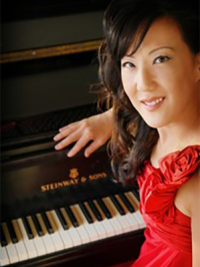
Caroline Hong, Music
"Ludwig van Beethoven’s Symphony No. 9 in D minor, Op. 125”
Caroline Hong, professor of piano, performs Franz Liszt's two-piano transcription of Beethoven's Ninth Symphony in collaboration with pianist Ryan Behan.
I. Allegro ma non troppo, un poco maestoso;
II. Molto vivace;
III. Adagio molto e cantabile; I
IV. Finale
Franz Liszt redefined the piano through his compositions for that instrument as well as his own virtuosity at the keyboard. He also helped circulate many other composers' music by making piano transcriptions and paraphrases. He transcribed Beethoven's nine symphonies brilliantly as well as faithfully at a time before recordings and repertoire-driven orchestral concert series. In doing so, he helped place these works at the center of the musical canon.
Liszt's two-piano transcription (1851) of Beethoven's Ninth Symphony is especially important. This was the symphony, closing with a setting of Friedrich Schiller's "Ode to Joy" for vocal soloists and chorus, that opened instrumental music up to the human voice and verbal expression. By crossing those boundaries, Beethoven's profound final symphony became important both to Liszt's development of the symphonic poem and to Richard Wagner's operas. Even with the loss of words and voices — and the substitution of two musicians for a hundred — Liszt keeps intact the Ninth's ability to deeply move its audience.
Wednesday, April 24
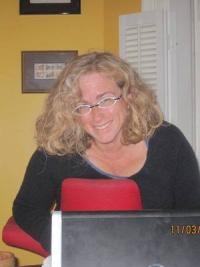
Gabriella Modan, English
"New Urban Chic: The Semiotic Landscape of Gentrification in US Cities"
City streets are texts that are written in words, images, and architectural features. Urban residents and visitors alike make judgments about city spaces based on the ideological frameworks they bring to interpreting the particular conglomeration of signs and symbols in a given space. In this talk I discuss the semiotic landscape of Washington, D.C., a city undergoing rapid gentrification. Focusing on name signs containing the work urban, I examine how, as the city gentrifies, the semiotic landscape contributes to a physical and symbolic reconfiguration of urban space as well as a shift in the meaning of the word urban itself.
Wednesday, Nov. 29
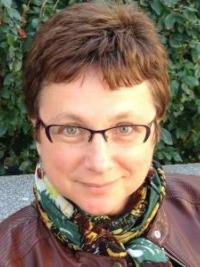
Maria Ignatieva, Theatre
"Women Behind the Scenes: Stanislavsky, the System and Female Actors"
The Stanislavsky System, which has been practiced in the U.S. for over 80 years, is wrapped in the lore of facts and legends, conflicting teaching approaches, failures and international acting successes. In fact, it mirrors the path of its development. In my presentation, I will talk about female actors who have contributed to every single stage of the System from Stanislavsky’s first experiments until his death as muses, reluctant followers, saboteurs, faithful colleagues and devotees.
Wednesday, Nov. 29

Jeanine Thompson, Theatre
"From International Legend to Contemporary Influencer: Building the Legacy of Marcel Marceau at OSU"
In this lecture, Professor Thompson will share a bit about herself as an artist and will speak about her work with world-renowned mime artist, Marcel Marceau. Thompson will address what they accomplished together and how that work has influenced the development of the Ohio State Jerome Lawrence and Robert E. Lee Theatre Research Institute Library’s Marcel Marceau Special Collection Archive; research that utilizes Marceau’s motion-capture data; and the dream to development a first-of-its-kind program here at Ohio State.
Wednesday, Dec. 13

Roger Beebe, Art
"Meaning and Material: Two Forms of Film Research"
This presentation explores the two poles of Professor Beebe's film work: one focused on a material investigation into the basic properties of the medium of film, and the other a more essayistic practice concerned with the transformation of physical and mediated landscapes by the forces of global capital.
Wednesday, Jan. 24

Cynthia Clopper, Linguistics
"Sociolinguistic Competence: What Children Know about How Speech Indexes Regional Background"
Adults use information in the speech signal to identify properties of their interlocutors, such as where they are from. Children must acquire this knowledge about the relationships between speech variation and regional background as part of the language-acquisition process. The results of a series of studies exploring children’s and adults’ perception of regional dialect variation in American English demonstrate both acquisition of the fundamental skills underlying adult-like sociolinguistic competence by preschool-age, as well as protracted continued development of sociolinguistic categories into adolescence, when adult-like performance is achieved.
Wednesday, Jan. 31
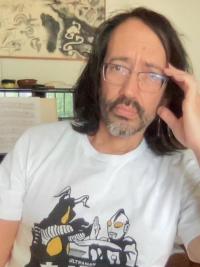
Abe Roth, Philosophy
"The Practical Significance of Group Reasons for Individual Agents"
One reason I had for biking to work today is that I enjoy it. I also took myself to have another reason – one having to do with the large-scale environmental damage associated with a car commute. But is this really a reason for me to bike? Whether I bike or take a car makes no significant difference in averting climate disaster. We collectively or as a group seem to have reason to ride our bikes; it makes a substantive difference if many or all of us do our parts. But since it makes no significant difference whether I join in, it’s not clear how this fact about the group’s reason for action translates into a reason for me. How are we to respond to this skeptical “makes-no-difference” argument? I concede that there is a sense in which the environmental considerations are only a reason for groups that are large enough. I will argue that an individual can, nevertheless, be entitled to this reason, and this is what enables the individual to act for it. By invoking a distinctive form of agency exercised when acting with others, I hope to show how it is that group reasons can have a significance for an individual agent they otherwise would not have.
Wednesday, Feb. 14

Carolina Lopez-Ruiz, Classics
"Orientalism: My Way"
Long after “orientalism” was identified as a problem in the representation of the Near East, the field of Classics still adheres to Greek and European exceptionalism, which results in an siloed view of ancient Mediterranean cultures. In her work on Greek and Near Eastern contact, López-Ruiz explores the common ground between Greek and Semitic cultures, especially the Phoenicians, to offer a more integrated view of the classical world.
Friday, Feb. 16

Shannon Winnubst, Women's Gender and Sexuality Studies
"Doors: An Object Lesson in Race and Sexuality"
This project engages theory as a mode of world-making to construct a more robust affective syntax than classical liberalism offers for the complex formations of race. By locating the formation of modernity in a violent anti-black metaphysics, this lecture places incipient “whiteness” in relation to two doors: the Door of No Return that Dionne Brand names the catastrophe of the transatlantic slave trade and the door of the domestic bedroom that anchors Michel Foucault’s genealogies of modern sexuality. What might it mean to inhabit the spaces between these doors? How might this alter our understandings of both race and sexuality?
Friday, April 13
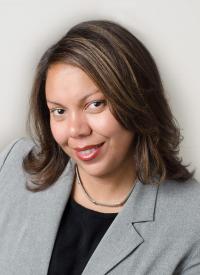
Simone Drake, African-American and African Studies
"Racial Angst from the Silver Screen to the White House"
For over eight years the image and political ideologies of a singular black man dominated global media. The election of Barack Hussein Obama as the forty-fourth United States president was both a landmark for a nation built upon slavery, or, as Toni Morrison has called it, “on the backs of blacks,” and an occasion that rebirthed egregious public acts of anti-blackness. The Atlantic writer, Ta-Nehisi Coates’, recently identified reality TV star and business mogul Donald Trump’s ascendancy to the Commander-in-Chief as “the first white president,” while The New York Times columnist Charles M. Blow’s Op-Ed declared: “Trump wants to be Obama.” The analysis by these two journalists position Obama as a specter of black masculinity that even when departed from The White House haunts Trump. This logic of haunting is not unique to Trump; it began manifesting in popular film in a particular way at the closing of the twentieth century. This presentation discusses such films as a foreshadowing of the current social and political climate driven by an angst surrounding white masculinity that is haunted by black masculine specters.
Friday, April 20
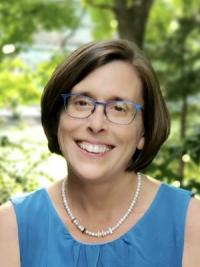
Lisa Voigt, Spanish and Portuguese
"Representing Brazil in Early Modern Europe"
Focusing on print illustrations and theatrical performances of “Brazilians” in sixteenth- and seventeenth-century Europe, this talk offers an overview of two current projects: one explores the recycling and copying of travel account illustrations, and the other the participation of non-European peoples in public festivals through music, dance and performance. Both projects look beyond the category of the exotic to explore how knowledge of the wider world circulated among European publics, including in ways shaped by non-Europeans themselves.
This project engages theory as a mode of world-making to construct a more robust affective syntax than classical liberalism offers for the complex formations of race. By locating the formation of modernity in a violent anti-black metaphysics, this lecture places incipient “whiteness” in relation to two doors: the Door of No Return that Dionne Brand names the catastrophe of the transatlantic slave trade and the door of the domestic bedroom that anchors Michel Foucault’s genealogies of modern sexuality. What might it mean to inhabit the spaces between these doors? How might this alter our understandings of both race and sexuality?
Wednesday, Oct. 19

Angus Fletcher, English
"The Hollywood Hack: How Story Science Can Reprogram Studio Movies and TV"
Fletcher will discuss how cognitive studies and other story science techniques have facilitated the development of progressive narrative structures in his recent projects for Disney, Universal and Amazon.
Wednesday, Nov. 16
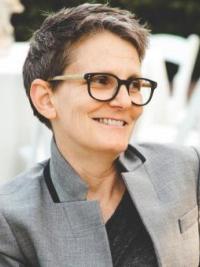
Shannon Winnubst, Women’s, Gender & Sexuality Studies
"Decolonizing the Human: The Ontology of Mind-Blowing Racism"
Humans are a failed species: full of violence against one another and the planet that sustains us, we seem unable to constrain our destructive impulses, despite our ongoing self-congratulatory celebrations of the rational. Drawing on theoretical work in both decolonial and black studies, this lecture frames the problem of “the human” through the question of its emergence, rather than its demise or eclipse. The lecture will explore accounts that locate the emergence of the universalizing idiom of “the human” in the 15th century contemporaneous developments of Renaissance humanism and European (especially Iberian) colonialism, thereby locking the figure of the human directly into the violence of colonialist racialization. By rotating the geohistoric axis of paradigms of both humanism and the concept of race from normative 18th-19th century northern European-northern American accounts, I will speculate on what this might tell us about the ontology of one of the most disturbing social phenomena of our contemporary times: mind-blowing racism.
Wednesday, Jan. 18

Danielle Fosler-Lussier, Music
"The United States Information Agency and American Music Abroad"
In the 1950s and ‘60s, the United States Information Agency shipped sound recordings and printed music all over the world. The USIA’s music collections embodied an attractive portrait of America’s ethnic and stylistic diversity: jazz, classical, folk, musical theater, and popular songs were well represented. This talk shows that the USIA’s program not only documented American music as it was, but also offered incentives that meaningfully shaped its creation.
Wednesday, Feb. 8

Theresa Delgadillo, Comparative Studies
"Afro-Latinidad in Fiction and Film"
Delgadillo will discuss her current research on Afro-Latinidad in Mexican, Puerto Rican, and Chicana/o texts – film and literature, as a new line of inquiry that continues her enduring interest in the intersections of religion, gender, race, and nation. She will explore the cultural and narrative significance of cinematic and literary representations of worldviews and practices rooted in the experience of African Diaspora as well as uniquely and distinctly Latina/o in a variety of ways.
Wednesday, Feb. 15
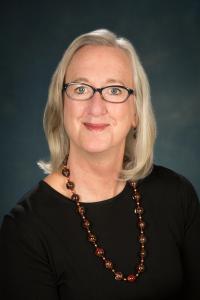
Susan Lawrence, History
“The American Cadaver, 1880-1980”
In the 1960s-1970s donated bodies gradually replaced unclaimed bodies for human dissection in medical education. Professor Lawrence examines why this happened and discusses the implications for the anatomical laboratory and its students.
Wednesday, March 22

Georgios Anagnostou, Classics
"European Americans: How they Matter"
It is not uncommon for scholarship to dismiss the cultural relevance of European Americans, or even to interrogate their identity narratives as counter-productive to interracial understanding. This talk will explore the complexities of the category "European Americans" and discuss why and how their study matters.
Wednesday, April 26

Norah Zungia-Shaw, Dance
"What Else Might Physical Thinking Look Like?"
Professor Zuniga Shaw's research focuses on placing choreographic ideas at the center of interdisciplinary research and creativity. She will share her work as a creative director for digital projects and her vision for fostering better futures through collaborations driven by creative motion and physical thinking.
Wednesday, Oct. 21
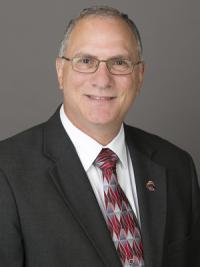
Peter Mansoor, History
“The Iraq War and the Rise of ISIS”
The seizure of much of northern and western Iraq last year by the Islamic State of Iraq and al-Sham, or ISIS, shocked the world. The United States and its allies are now wrestling with the dangers ISIS poses and what, if anything, they should do about it. Dr. Peter Mansoor will discuss his research on the Iraq War and its role in the birth of ISIS, a terrorist group spawned from the defeat of al-Qaeda in Iraq by the Sunni tribal awakening and the U.S. surge in Iraq in 2007 and 2008.
Wednesday, Nov. 18

Margaret Newell, History
"A Tale of Two Kidnappings"
In 1676, two New England Indian families experienced the horror of being sold into Atlantic slavery. One family made it back to freedom. In telling their stories, Professor Newell will reveal the hidden history of Indian slavery in early America.
Wednesday, Dec. 2
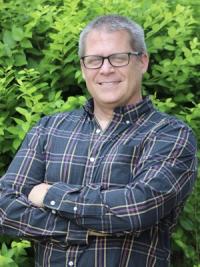
Scott Schwenter, Spanish and Portuguese
"Would you just die already? Priming and Obsolescence in Grammar”
Why won’t some grammatical elements in a language just die out? In this talk, I provide evidence to show that persistence in discourse, the priming of a grammatical item G by some prior mention of G or one of its variants in discourse, plays a crucial role in keeping obsolescing grammatical items from dying out completely. Examples will be drawn from Spanish, Portuguese, and English.
Wednesday, Jan. 27

Chris Pincock, Philosophy
"Mathematics and Scientific Change"
Mathematics is a central part of scientific activity and seems to be responsible for many of the successful aspects of science. This talk considers a few of the ways that the scientific use of mathematics has changed over time. These changes exhibit an increasing awareness of how mathematized science can attain knowledge of a mind-independent reality, even concerning what is remote from experimental testing. I argue that this sort of reflection gives us a good reason to be optimistic about the long-term prospects for supplementing and correcting our scientific accounts of the natural world.
Wednesday, Feb. 24
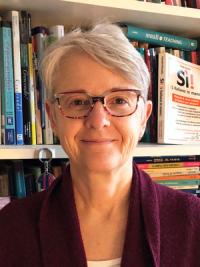
Janice Aski, French and Italian
"Trading places: Double object clitic pronouns from medieval Florentine to Modern Italian"
In American English we can say "I give it to you" or "I give you it". Medieval Florentine had a similar alternation: "Lo ti do" vs. "Te lo do". However, in modern Italian, only the latter (Te lo do) is acceptable. In this talk I argue that variation in language is rarely, if ever, random, and provide evidence that suggests how these two variants were used in medieval Florentine and how and why the alternation was lost.
Wednesday, March 9
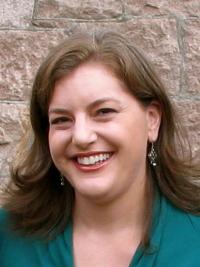
Jennifer Siegel, History
"Money and Power: Financial Diplomacy and the Sinews of War and Peace"
This talk will examine the give and take between high finance, international politics and domestic pressures through the lens of the early twentieth century Anglo-Russo-French financial relationship. The story of British and French private and government loans to Russia in the late imperial period up to the Genoa Conference of 1922 is a classic tale of money and power in the modern era—an age of economic interconnectivity and great power interdependency. Imperial Russia was the foremost international debtor country in pre-World War I Europe. From the forging of the Franco-Russian alliance onwards, Russia’s needs were met, first and foremost, by Russia’s allies and diplomatic partners in the developing Triple Entente. In the case of Russia’s relationships with both France and Great Britain, an open pocketbook primed the pump, facilitating the good spirits that fostered agreement. And Russia’s continued access to those ready lenders ensured that the empire of the Tsars would not be tempted away from its alliance and entente partners.
Wednesday, March 30

Wynne Wong, French and Italian
“Liaisons: Building Bridges Between Second Language Acquisition Theory, Research, and Classroom Practice”
Processing Instruction is a type of pedagogical intervention that is designed to help second language learners acquire specific grammatical structures by teaching them to process input correctly and efficiently. Based on a theory of input processing, the intervention does not require production of target structures during training, and uses instead structured input to give learners practice with input processing. This talk will discuss the theoretical framework behind Processing Instruction and how this research paradigm resulted in the creation of Liaisons, a French textbook and film that bridges the gap between second language acquisition theory and classroom practice.
Wednesday, April 27

Joan Cashin, History
"Subject Matter: Material Culture in the Civil War Era"
Historians of the United States have recently discovered, or rediscovered, the material dimension of the human past. Scholars have done a good deal of excellent scholarship on the colonial period, the late nineteenth century, and the twentieth century, but they have neglected the Civil War era. In this talk, I will explore the material culture of the War, specifically the Revolutionary-era artifacts that the region contained when the war erupted in 1861. The South included large physical landmarks associated with the Revolution, such as forts, remnants of forts, and homes of Revolutionary figures, as well as a widely dispersed array of hundreds of personal objects owned by the Founders and their relatives. Soldiers in both armies, plus members of the civilian population, viewed these artifacts as precious relics that had to be protected from the enemy. Their struggle over these artifacts can provide new ways of thinking about material culture and collective memory in nineteenth-century America.
Tuesday, Oct. 7
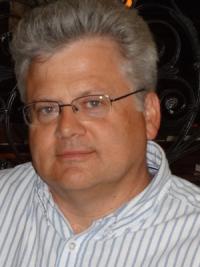
Hannibal Hamlin, English
"Tobit's Dog: Reading and Writing the Bible in Renaissance England"
Though not widely known today, the apocryphal (for Protestants) Book of Tobit was one of the most popular biblical texts in the 16th and 17th centuries. The bizarre story involves a pious old man blinded by sparrow's dung, the archangel Raphael disguised as a hired servant, a woman beloved by a demon who strangles her first seven husbands, a monstrous fish with a magic liver, and the only domestic pet—a dog—in the Bible. In this talk Hamlin will explore the story's reception history in the writing of English men and women of all sorts, including poets and playwrights, preachers and prophetesses, many of whom seem to have been particularly fascinated by the loyal but curiously irrelevant dog.
Wednesday, Oct. 22
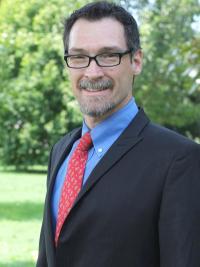
James Genova, History (Ohio State-Marion Campus)
“Africa in the World: Transcending the Nightmare of the Past”
This lecture examines the struggle for liberation and development through the lens of early West African cinema during the transition from colonial rule to political sovereignty. It explores broad theoretical frameworks for analyzing historical processes as well as the construction of personal and communal identities in the context of “doing” African history. In the tradition of the progenitors of West African film, the paper situates the African experience in the global context making an argument for a African contribution to globalization while challenging essentialist renderings of Africa and Africans. The story of Africa is at once revelatory of humanity’s fight for a better, more just world and illustrative of the profound structural barriers that inhibit the attainment of that vision.
Tuesday, Nov. 18
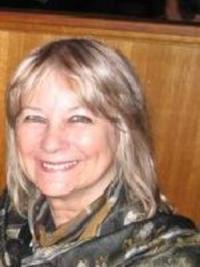
Sabra Webber, Comparative Studies and Near Eastern and South Asian Languages and Cultures
"Retrospective Light"
British anthropologist Marilyn Strathern writes, “Indeed, there is sense in which significance inevitably lies in what things become, for it is the retrospective light that picks them out at all.” This lecture’s overarching theme is a consideration of some of what has been left out of that retrospective light over the past 250 years. What Homi Bhabha calls “spillage” is bound to occur as we categorize, compartmentalize, hierarchize and generalize, in effect, colonize the past. Recognizing a more intricate past and foregrounding points of rupture embedded in a Western-centric grand narrative enables a more productive relationship between past and present. Data are drawn from recent research in folkloristics, anthropology, ethnography and related disciplines.
Tuesday, Dec. 2
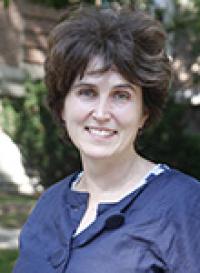
Laura Lisbon, Art
"Some Notes on Painting"
Structured as an artist talk, the presentation will address Lisbon's studio practice from the last five years, a practice in which the development of the “set-up” has opened up a rethinking of the critical limits of painting. The hinge between painting and drawing has also been a focus of Lisbon's work, as well as a continued interest in the intersections between concepts of the tableau, language and architecture.
Wednesday, Jan. 21

Paul Reitter, Germanic Languages and Literatures
"Bambi's Jewish Roots"
This lecture will reconstruct the complex—or at least idiosyncratic—Zionist commitments of the Viennese journalist, novelist, playwright and pornographer Felix Salten—and, having done so, it will attempt to reveal how those commitments echo throughout Salten's most famous book: Bambi (1923).
Wednesday, Feb. 4

Lucy Eldersveld Murphy, History
“Imagine Them to be a White People: Fur Trade Families Resisting Racialization in the Era of American Indian Removal”
In the early 19th century, thousands of families of mixed Native American and European ancestry lived in more than 50 communities around the U.S. Midwest. Unlike Hispanics in the Southwest or the Métis of western Canada, however, these populations avoided becoming a marginalized, racialized minority as a result of political factors, economic adaptations and the efforts of women as mediators, and they avoided removal. This lecture will offer case studies of key individuals and events in the Great Lakes region in a comparative transnational context.
Wednesday, Feb. 18
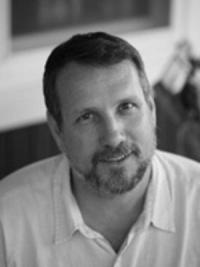
John Davidson, Germanic Languages and Literatures
"Ecological Visions in Post-WWII Germany"
Increasingly, scholars stress the need for integrating the social sciences and humanities in global environmental-change research to counteract conceptions about the environment descended from the decades following WWII. This presentation returns to the art and thought of the “late modernist” period (1946-82) to ask about the role of aesthetic works – especially moving and still film images – in reorienting ourselves to the environment. While some modernist theories of the post-WWII era left much to be desired in their approach to the environment, late modernism exhibits complexly intertwined responses to technology and progress that remain of value.
Wednesday, Feb. 25

Kevin Scharp, Philosophy
"Philosophy and Defective Concepts"
From familiar concepts like tall and table to exotic ones like gravity and genocide, they guide our lives and are the basis for how we represent the world. However, there is good reason to think that many of our most cherished concepts, like truth, freedom, knowledge, and rationality, are defective in the sense that the rules for using them are inconsistent. This defect leads those who possess these concepts into paradoxes and absurdities. Indeed, I argue that many of the central problems of contemporary philosophy should be thought of as having their source in philosophical concepts that are defective in this way. If that is right, then we should take a more active role in crafting and sculpting our conceptual repertoire. We need to explore various ways of replacing these defective concepts with ones that will still do the work we need them to do without leading us into contradictions.
Tuesday, March 10
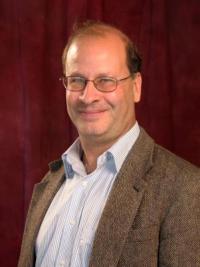
David Clampitt, Music
"Aspects of Mathematical Music Theory"
After an introduction to some topics one studies generally in the field of music theory, via music by J. S. Bach, this talk will present a recent approach to fundamental elements of music--scales, modes, triads--through the lens of mathematics. Often when mathematics has been applied in a musical context, it has referred to acoustics, numerical ratios, or considerations of 12-tone serialism. In the current context, abstract structures are captured through the language of algebraic combinatorics on words, working with very unconstrained monoids of two-letter words. The argument will at least be broached that the structures uncovered are consistent with the intuitions of theorists in the historical development of music.
Wednesday, March 25

Michael Mercil, Art
“An Artist in a Public University”
This multi-media presentation of recent Living Culture Initiative projects is focused on Mercil’s use of the Ohio State campus as his artist’s studio and platform for addressing the question, “If this university is a place not only for cultural reflection, but is also a site for cultural production, then what is the nature of the culture we produce here?”
Wednesday, April 8

Caroline Hartig, Music
“Solo Clarinet from Classical to Klezmer”
This lecture will celebrate some of the repertoire, composers, and performers that have influenced the evolution of the clarinet into a solo instrument of eminence. This collection displays the versatility and communicative powers of the clarinet and highlights its ties to opera in the 19th century and its development, during the first decades of the 20th century, in the competitive environment of the Paris Conservatoire as well as the resurgence of Klezmer music into the 21st century.
Tuesday, April 21

Joseph Zeidan, Near Eastern and South Asian Languages and Cultures
“The canonization of the Greco-Roman form of theater in the Arab World”
This lecture will explore the ramifications of introducing the Greco-Roman form of theater into the Arabic culture in the middle of the 19th century. It will describe the process in which the European aesthetic was able to supplant the indigenous theatrical aesthetic. Zeidan will propose a new approach for writing the history of Modern Arabic theater.
Tuesday, Oct. 8

Yana Hashamova, Slavic and East European Languages and Cultures
“War Rapes: Redefining Motherhood, Fatherhood, and Nationhood”
Based on Slavenka Draculic’s S. A Novel about the Balkans (1999) and Jasmila Zbanic’s Esma’s Secret (2006), this paper considers the horrors of war rapes and their consequences for a generation of women who were forced to experience motherhood under transgressive circumstances, the mytho-creation of fatherhood, and the new(old) face of nationhood in Bosnia.
Tuesday, Nov. 19

Rebecca Haidt, Spanish and Portuguese
“Mobilities in Madrid’s popular theatre: majo narratives of unsettledness, transport and displacement”
Majos are some of the most important characters in popular plays and skits produced in Madrid between 1760 and 1825. Plotted into working-class neighborhoods, Madrid's theatrical majos are construed as salt-of-the-earth defenders of a "Spanishness" resistant to elite or foreign interests. However, what about majo accounts of immigration to the city, harassment by authorities, arrests for “vagrancy”, and transport to arsenals and African presidios? The lecture approaches majo dialogues as a heterogeneous and fragmented collective narrative about 18th and 19th century mobilities, requiring analysis within new frameworks.
Tuesday, Jan. 14
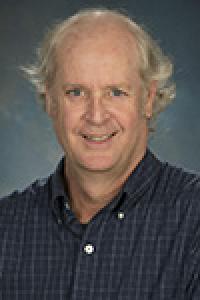
Mark Bender, East Asian Languages and Literatures
“Life from the Sky: Eco-Genealogy and Cosmographic Epics from Southwest China and Beyond”
The epic poem, the Book of Origins, is a major ritual text of the Nuosu (Yi) people of Southwest China. This lecture will discuss the epic and other traditions which meld distinct features of the local environment with human experience.
Wednesday, Feb. 12
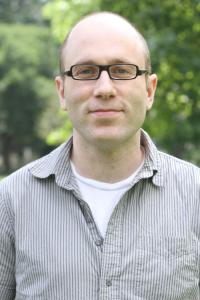
Ben Caplan, Philosophy
"Doing Ontology: The Case of Music and Fiction"
This lecture focuses on what are musical works and fictional characters. Do they exist? If so, where are they located in space and time? And what sorts of things are they anyway? Caplan will discuss recent work on these questions, which has tended to place a lot of emphasis on how we ordinarily think and talk about musical works and fictional characters.
Wednesday, Feb. 26

Angela Brintlinger, Slavic and East European Languages and Cultures
“It’s About Genre”
Brintlinger has worked on biography, the short story, the novel, plays, poetry, and the essay. She has translated essays, dramatic scenes, poetry, literary biography and scholarly articles. She is fascinated by the epistolary and the diary forms, and has written letters, reviews, essays, and blog posts. In her inaugural lecture, she will look at the ways in which the idea of genre has affected her writing and thinking about language and the word.
Tuesday, March 4
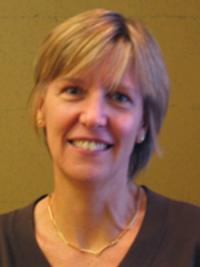
Alice Conklin, History
“Down from the Ivory Tower: Anthropology and Anti-racism at UNESCO, 1945-1955”
Conklin’s lecture considers what happened when a global network of idealistic social scientists based in Paris got caught up in the power politics of the early Cold War. Lessons from the past, she argues, can illuminate the possibilities and perils facing intellectuals today who seek to use their science to make a difference in the world.
Wednesday, March 19

Lisa Florman, History of Art
“The End of Tradition as Traditionally Conceived”
This lecture will explore the dramatic changes that artistic “tradition” underwent in the late-19th and early-20th centuries. Florman argues that understanding the relation of Picasso’s Demoiselles d’Avignon to earlier works of art (including works outside of the Western tradition) may also help us think through some of the complexities of the multicultural and transcultural work being produced today.
Tuesday, April 1
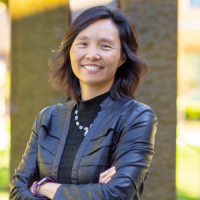
Judy Tzu-Chun Wu, History
"Afro-Asian Love and Politics in the Era of Bandung and Viet Nam"
This multi-media presentation draws from Wu’s past experiences as a student activist in multi-cultural politics of the late 1980s as well as her book, Radicals on the Road: Internationalism, Feminism, and Orientalism during the Viet Nam War (Cornell 2013). She explores how travels across space and time fostered intimate and political relationships between people of diverse racial, gender, and national backgrounds. These journeys provide an opportunity to examine how individuals and ideas traveled across geopolitical borders, how personal and political networks formed, and how identities and ideologies were discovered, negotiated, and represented.
Wednesday, April 16

Andrew Shelton, History of Art
"A Passion For Ingres"
Shelton’s lecture will address the role of passion in both the production and reception of the art of the 19th-century French painter Jean-Auguste-Dominique Ingres. The talk will also preview an exhibition he will be curating at the Columbus Museum of Art for autumn 2015, Ingres's Passion: Raphael and the Fornarina.
Wednesday, Oct. 24
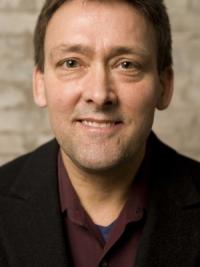
Ken Rinaldo, Art
"Symbiogenesis: When Biological & Algorithmic Species Meet"
Wednesday, Nov. 7
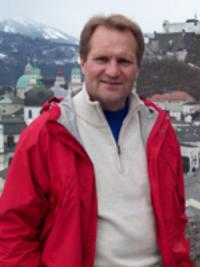
David Steigerwald, History
"Whatever Happened to Alienation? An Exercise in the Sociology of Knowledge from James Dean to the Unabomber"
Tuesday, Nov. 27

Chan Park, East Asian Languages and Literatures
"Mourning Becomes Song: The Ritual Origin of Korean Music Revisited"
Wednesday, Jan. 16

David Stebenne, History and Law
"Economically Necessary vs. Politically Possible: The Crisis of the 1930's and Its Consequences"
Tuesday, Feb. 5
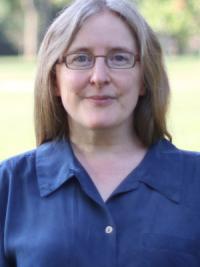
Dorothy Noyes, English and Comparative Studies
“Inimitable examples? Gesture and Tradition in Western Political Reform”
Wednesday, Feb. 20

Jared Gardner, English and Film Studies
"Popular Serialities and Reading Communities, 1787-2012"
Tuesday, March 5

Richard Torrance, East Asian Languages and Literatures
"It's Tough Being a Man Revisited: Nostalgia or Parodic Realism?"
Wednesday, March 27
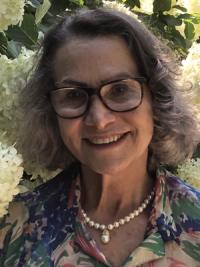
Lúcia Costigan, Spanish and Portuguese – CANCELLED
"Between Prophecy and Politics: Descendants of Sephardic Jews during the Spanish and Portuguese Dual Monarchy (1580-1640)"
Tuesday, April 9
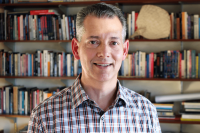
Chadwick Allen, English
"Re-scripting Ohio: Earthworks, Native Writing, and the (Im)possibilities of Indigenous Studies at Ohio State"
Tuesday, April 16

Maria Palazzi, Design
"Synchronous Objects: A model for multidisciplinary collaboration"
Wednesday, Oct. 19

Frank Donoghue, English
"How I Got from There to Here: Confessions of a Wayward English Professor"
Tuesday, Nov. 15
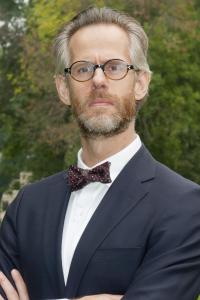
Kai Hammermeister, Germanic Languages and Literatures
"Defending Art against its Interpreters"
Tuesday, April 17

Linda Myers, African American and African Studies
"Black Again"
Wednesday, May 2
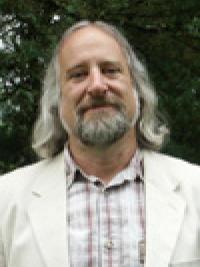
Ron Emoff, Music
"Ethnomusicology, Forest People, and Postcolonial Affects"
Wednesday, May 16
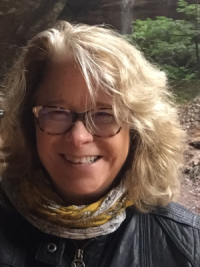
Wendy Hesford, English
"States of Exception: Children's Human Rights and the Humanities"
Wednesday, April 4 (Postponed to 2013)


